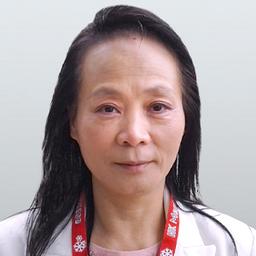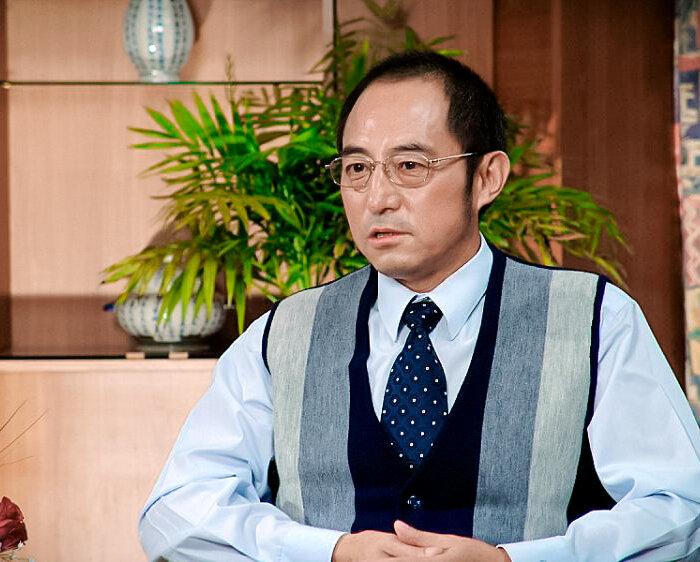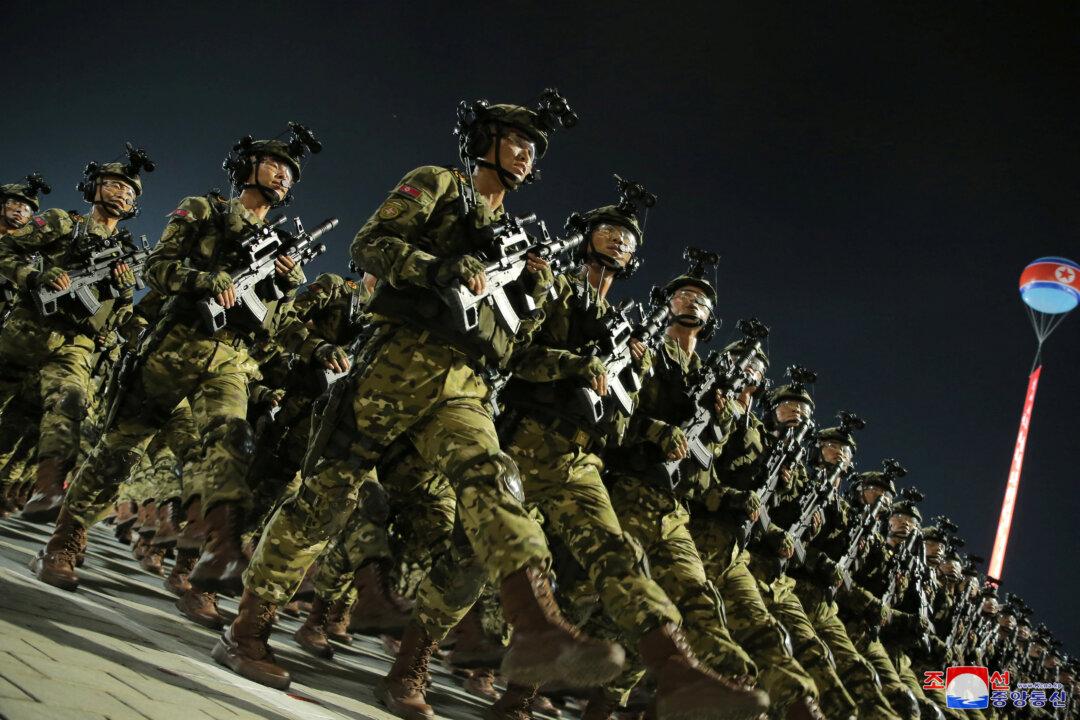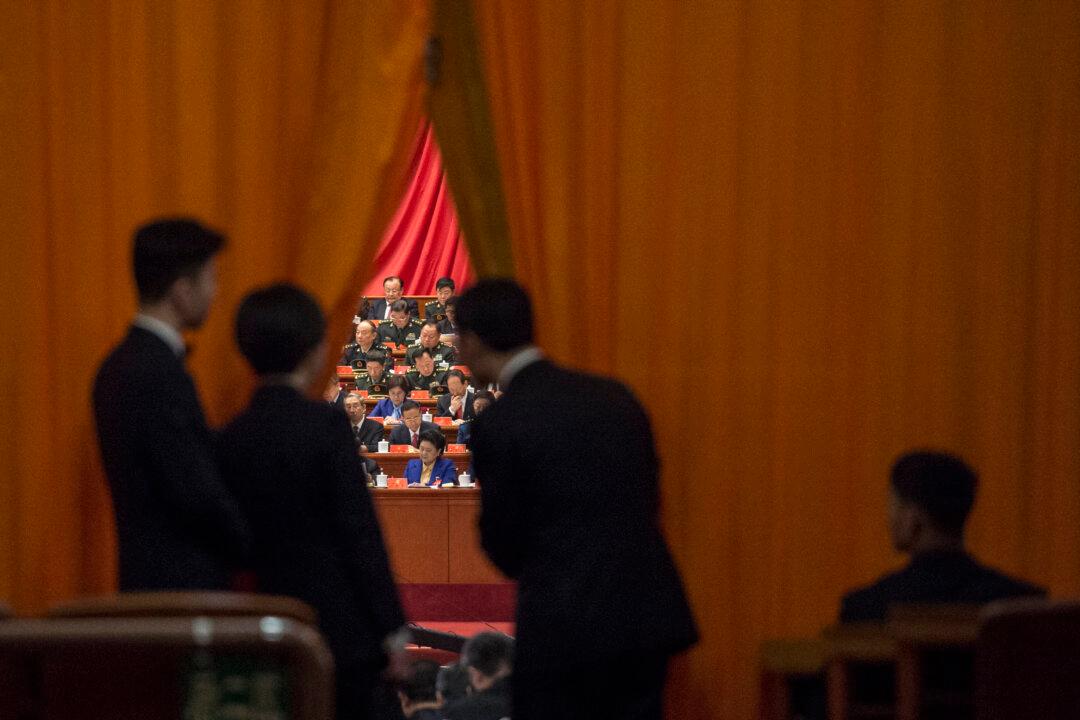Undermining the Principle of Religious Freedom
Feng Chongyi, associate professor of China Studies at the University of Technology in Sydney, told The Epoch Times that while freedom of speech and of the press are central to democratic societies, they must be balanced against respect for religious and spiritual freedom.In response to the articles in The New York Times, he said that honoring the religious beliefs of others is a fundamental principle that reinforces democratic values.
Feng said that The New York Times ignores fundamental journalistic principles and relies on sweeping generalizations in its articles.
“The New York Times crosses a line with its attack on Falun Gong practitioners. It undermines the principles of religious freedom and belief. This is both unacceptable and a violation of professional ethics,” he said.
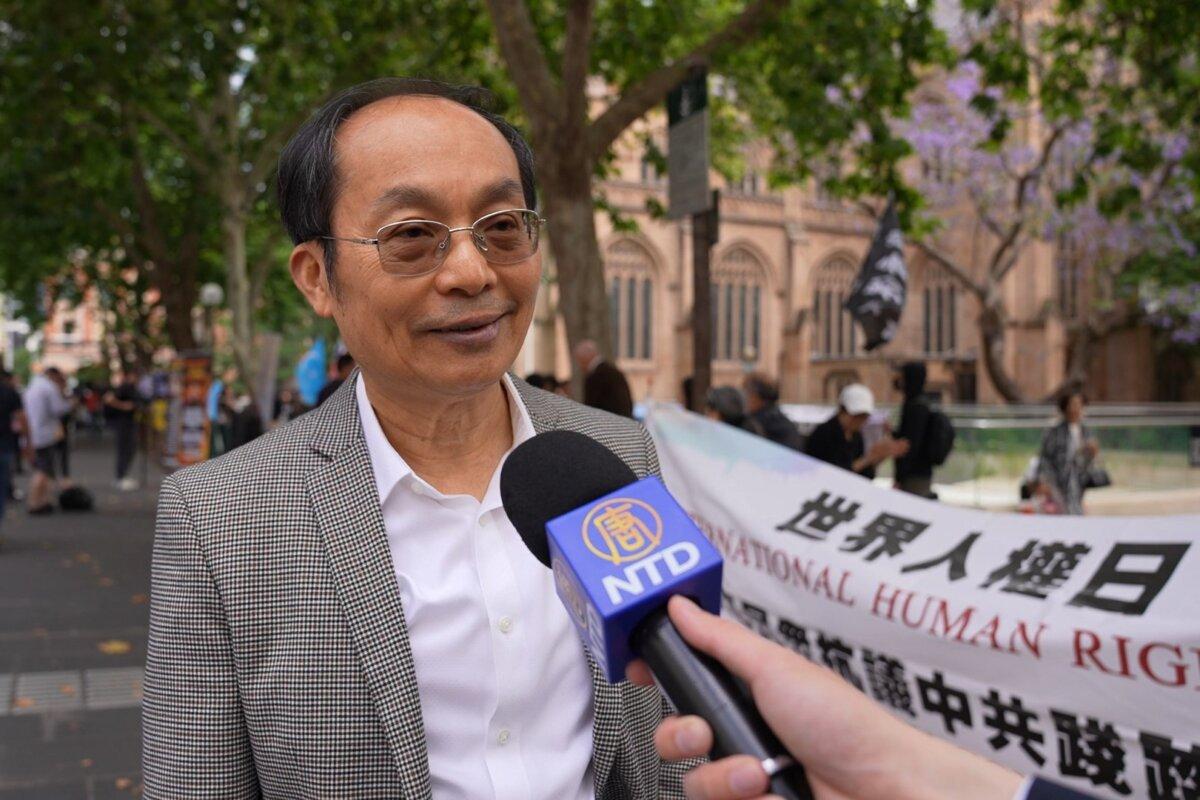
Falun Gong’s Impact
Introduced in 1992, Falun Gong rapidly gained followers across China, with practitioners striving to enhance their moral character and health by practicing the principles of truthfulness, compassion, and forbearance. Millions within China and from all over the world have since started practicing Falun Gong, and it’s a legally recognized spiritual organization in the United States and other countries. However, The New York Times has failed to acknowledge the benefits that practitioners derive from their practice.Feng noted Falun Gong’s growth and influence on society.
“The significance of Falun Gong is profound. It has grown into a global movement, spreading across the world,” he said. “From a religious sociology perspective, belief systems can be understood on two levels: theological and moral. For example, Christianity addresses the origins of life and the universe, while Buddhism explains concepts like reincarnation—both belong to theological belief systems.
“On the moral level, Buddhism has rules and precepts, and Christianity has the Ten Commandments, both of which are part of religious ethics. In this regard, I see Falun Gong’s core principles—truthfulness, compassion, forbearance—primarily as a moral framework.
“A street poll would show overwhelming support, as Falun Gong practitioners are widely recognized for their kindness and commitment to doing good. In the face of China’s corrupt, authoritarian regime, the principles of truthfulness, compassion, and forbearance offer essential moral guidance and foster personal moral growth.”

Given the positive influence of Falun Gong on society, why does the CCP harbor such fear of and hostility toward the practice? The communist regime has been persecuting Falun Gong since 1999, extending its efforts beyond China’s borders.
Feng attributes this to the nature of communist totalitarianism. Throughout its rise to power and its continued rule, the CCP has maintained control by eliminating political rivals and suppressing ideological dissent.
“The CCP’s totalitarian regime seeks absolute control over all aspects of power—political, economic, and ideological,” he said. “Its rule is built on eliminating opposition, both political and ideological, and suppressing any beliefs that exist outside its framework. This is why the CCP targets Falun Gong. The nature of totalitarianism compels it to eradicate any independent ideological, moral, or organizational systems.”
Feng observed that, from both a political perspective and a sociological perspective, Falun Gong has emerged as the largest and most formidable opposition to the CCP. Consequently, the regime, driven by its intrinsic nature, is resolutely committed to eradicating Falun Gong at all costs, regardless of the group’s focus on moral conduct and spiritual practice.

The New York Times’ Historical Bias
Following The New York Times’ attack on Shen Yun, its history of pro-communist and pro-CCP reporting has come under renewed scrutiny.In the 1930s, during the Soviet Holodomor in Ukraine, New York Times journalist Walter Duranty claimed that the reports of the famine were largely exaggerated. Duranty also defended Stalin’s policies.
In 2017, The New York Times also published articles with titles such as “Socialism’s Future May Be Its Past” and “How the Communist Party Guided China to Success.” The former suggested that “we may reject the version [of communism] of Lenin and the Bolsheviks as crazed demons,” while the latter’s title closely mirrored that of a piece published by the communist regime’s state organ, “Why the Communist Party Is Able to Succeed.”
An expert on communist regimes, Feng told The Epoch Times that Western media bias can be dated back to the Soviet era, when many journalists ignored Stalin’s brutality and even defended his actions. Similarly, left-wing journalists such as Edgar Snow, author of “Red Star Over China,” and Agnes Smedley, who wrote a biography of Chinese communist general Zhu De, portrayed the CCP as a moral force championing the people’s interests, while reporting from Yan'an during the Chinese Civil War. This was ironic, as these journalists supported a regime that directly contradicted the democratic and humanitarian values they professed to uphold.
Feng stated that pro-communist media, which share the ideological foundation of Marxism-Leninism with the Communist Party, have a deep sense of solidarity with such murderous regimes. This shared ideology leads them to whitewash criminal groups that trample on basic human morality, portraying the entire communist revolution as a movement for democracy and freedom, which is truly alarming, he said.
“This history stretches from World War II to the present, with its harmful effects still felt today,” Feng said. “It has misled the entire free world, directly shaping U.S. diplomacy, military strategy, and government policy. This ultimately led to the abandonment of Chiang Kai-shek’s Nationalist Party in favor of supporting the CCP or adopting a policy of appeasement toward it.”
Feng noted that the Chinese Communist Party’s evil nature was exposed after the collapse of the Soviet Union and Eastern European communist regimes. Yet media outlets such as The New York Times, and some of its left-wing journalists in particular, still hold onto their ideological biases, sympathizing with the CCP and supporting its authoritarian regime. This bias leads them to blindly accept the Party’s lies, he said.
“Sometimes when you read certain opinions in The New York Times, they almost sound like editorials from the People’s Daily,” Feng said.
“It’s quite disturbing, but not entirely surprising—there’s a historical context to it. ... They’ve adopted the narrative the CCP has fed them, and the demonization of Falun Gong is a prime example. When your perspective is wrong, your understanding becomes distorted, and your actions follow suit in strange ways.”
Feng acknowledged that not everyone at The New York Times is pro-CCP, but the newspaper’s bias often leads it to rely on CCP sources when covering Falun Gong and China, while overlooking independent outlets and the truths they present. This, he said, is deeply regrettable.
Blind Support Advances CCP’s Agenda
The New York Times has also published articles attacking The Epoch Times, which was quickly seized on by the CCP’s propaganda websites.Feng noted that media outlets such as The Epoch Times and NTD, which were founded by Falun Gong practitioners in the United States, have spent more than two decades exposing the CCP’s tyranny, including its crime of state-sponsored organ harvesting. Their work has been instrumental in raising global awareness, including within China, he said. While The New York Times may point to flaws in certain reports, dismissing the entire outlet and demonizing its efforts and contributions is unfair and serves to downplay the CCP’s abuses.
“They smear the media and groups that oppose the CCP,” Feng said. “It’s not only unethical but, at worst, it’s criminal collusion with the regime, attacking innocent protesters and independent media. This is unforgivable.”
Journalists who help push the CCP’s agenda believe they are in the right, but in the eyes of the communist regime, they are what are known as “useful idiots,” Feng said, adding that in reality, they are aiding the regime and acting as its accomplices.
CCP’s Cross-Border Suppression Is Bound to Fail
Recently, sources within the CCP have exposed the regime’s covert plans, revealing that its international campaign against Falun Gong is part of a broader strategy targeting the United States. The CCP is using people often referred to as “internet trolls” or “paid propagandists” to spread rumors and misinformation targeting Falun Gong.Feng said he believes that the CCP’s cross-border suppression efforts to eliminate Falun Gong are destined to fail.
“The nature of totalitarianism dictates its survival rules, which involve eliminating opposing forces, dissenters, and critics, whether domestically or abroad,” he said. “However, when you compare the forces at play, those fighting for truth, human rights, and democracy far outweigh the CCP’s power. That’s where our confidence lies.”
Feng said he believes that as outlets such as The Epoch Times continue to expose the CCP’s tyranny, more people are waking up to its true nature. However, many remain unaware, and the media must persevere in reaching and awakening even more people, he said.
“The CCP is in its final stages, facing inevitable collapse,” Feng said. “More and more people are becoming aware of its true nature. In democratic societies, many have committed to winning the second Cold War, just as we did in the first by defeating the Soviet Union. Now, the focus is on dismantling the CCP’s oppressive regime. The broader trend points to its eventual downfall. We are confident in the future and remain optimistic as we continue our important work.”

